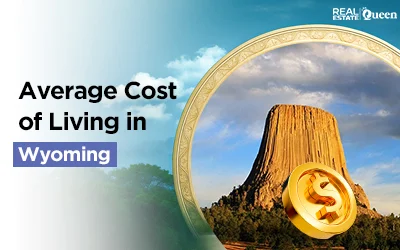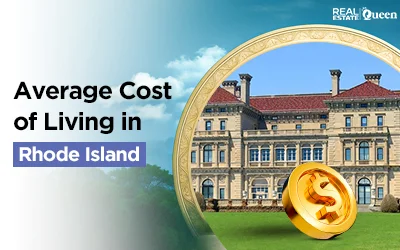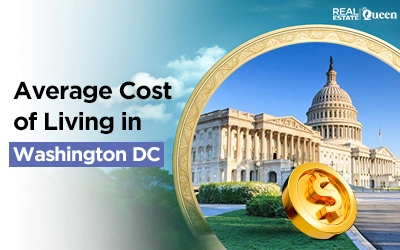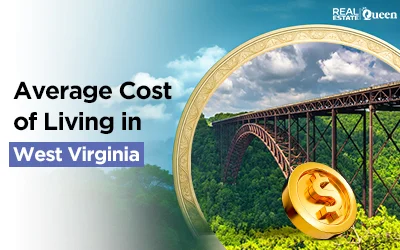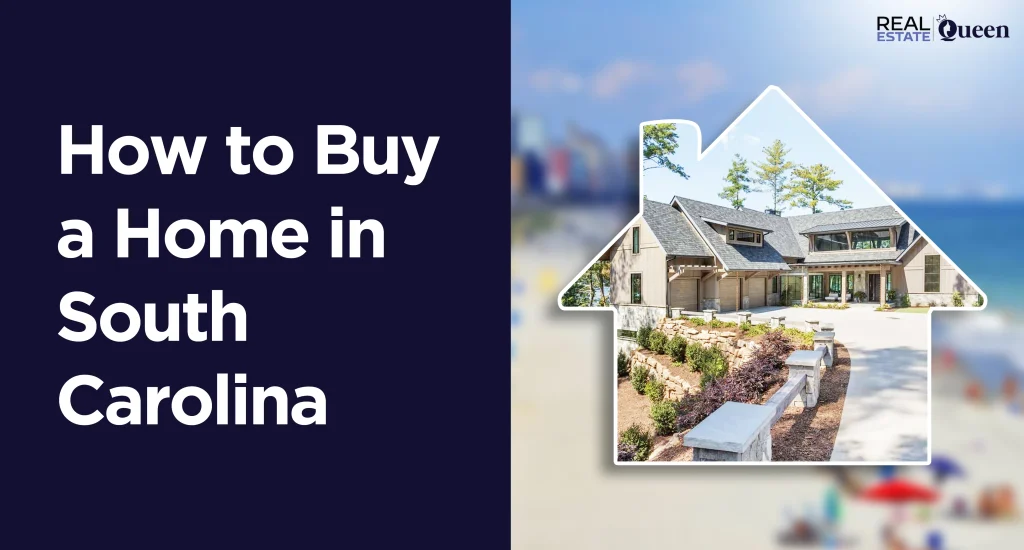
In 2025, South Carolina’s housing market presents a unique opportunity for homebuyers. The average home price in South Carolina is around $380,900, down 0.89% from last year, creating a more balanced market.
This guide provides a detailed plan for buying a home in South Carolina, navigating its challenges while leveraging its benefits.
Key Takeaways
- Step 1: Assess your finances and credit for realistic home buying goals.
- Step 2: Obtain mortgage pre-approval with all necessary documentation.
- Step 3: Hire a licensed South Carolina real estate agent and attorney.
- Step 4: Explore metro-specific markets from Charleston to Spartanburg.
- Step 5 Craft competitive offers including earnest money and contingencies.
- Step 6 Complete thorough inspections with a focus on local risks.
- Step 7 Finalize financing, insurance, and closing steps confidently.
Current South Carolina Housing Market Overview (2025)
The South Carolina housing market takes a shift in 2025. Buyers have more leverage with a 68-day median market time and 6.7% inventory growth.
How to Buy a Home in South Carolina: 7 Steps
Step 1: Figure Out Your Finances
Before you look for homes for sale in South Carolina, you need a clear budget. With the Palmetto State’s unique cost of living, careful financial planning is necessary beyond standard home-buying expenses.
How much house you can afford in South Carolina depends on key factors. With a low 0.56% property tax rate and a Homestead Exemption that cuts up to $50,000 from assessed value, homeowners enjoy lower taxes and more manageable monthly costs.
Coastal buyers in South Carolina must plan for flood insurance. Homes in FEMA high-risk zones require it with a mortgage, since standard policies cover wind but not floods. Adding taxes, exemptions, and insurance gives a clearer picture of true affordability.
Get Your Down Payment Ready
FHA loans in South Carolina require credit scores of 580 or higher, while conventional loans usually need 620 or more. First-time buyers can use programs like SC Housing Homeownership, Palmetto Heroes, and SC HOPE for added support.
Get Pre-Approved for a Mortgage
Current average mortgage rates in South Carolina are about 6.6% for a 30-year fixed loan and 6.1% for a 15-year fixed loan. To get pre-approved, you’ll need documents like tax returns, W-2s or 1099s, recent pay stubs, bank statements, proof of assets, and a government-issued ID.
Step 2: Find Your Dream Home in South Carolina
With a set budget, you can find your dream home faster. Houzeo, South Carolina’s best home buying website, allows you to browse through the latest listings with smart filters for price, ZIP code, schools, etc.
Save searches, set alerts, and navigate South Carolina’s market efficiently—without paying broker fees.
Whether you are looking for homes for sale in Charleston, Columbia, or Spartanburg, the best place to buy in South Carolina depends on your priorities:
- Charleston: historic charm blended with coastal living.
- Columbia: affordable housing with state capital amenities.
- Spartanburg: lower median prices are ideal for first-time buyers.
Step 3: Make an Offer That Wins
In South Carolina, earnest money deposits are usually 1–2% of the home price but generally shouldn’t exceed $7,500. Buyers should include financing and inspection contingencies to protect their interests during contract negotiations.
Step 4: The Crucial Due Diligence Period
In South Carolina, inspection contingency periods typically last 3–7 days. Most standard home inspections take 2–4 hours to complete.
Buyers should also be prepared for state-specific checks, including termite and pest inspections, radon testing, sewer scopes, and structural evaluations.
Step 5: Secure Your Financing and Insurance
In South Carolina, homes in FEMA-designated high-risk areas require mandatory flood insurance. Coastal buyers should also consider windstorm coverage.
It’s important to coordinate these insurance policies with mortgage finalization to ensure a smooth closing.
Step 6: Prepare for Closing Day
Average buyer closing costs fall between 2% and 5% of the home’s sale price. Account for attorney fees, title insurance, property taxes, and any HOA or community association fees ($200–$500/month).
Review the Closing Disclosure document carefully with a federally mandated 3-day review before signing.
Step 7: Welcome Home!
After closing, South Carolina homeowners can take advantage of tax benefits like the Homestead Exemption, which lowers property taxes for qualifying residents.
Programs like Palmetto Heroes provide additional support, helping first-time buyers and service members make homeownership more affordable.
Tips for South Carolina Homebuyers: Do’s and Don’ts
Do’s
- Research neighborhood-specific market trends deeply
- Seek expert guidance from licensed agents and attorneys
- Complete essential inspections thoroughly
- Apply for first-time buyer assistance early
- Lock mortgage rates promptly in volatile markets
Don’ts
- Underestimate insurance needs in coastal and flood-prone zones
- Skip the inspection or waive contingencies to win bidding
- Neglect closing cost planning and budgeting
- Delay mortgage pre-approval or documentation
- Overlook local tax exemptions and buyer programs
Conclusion
Buying a home in South Carolina offers a range of opportunities, from charming coastal towns to growing urban centers. Understanding the market and leveraging state programs gives buyers an advantage.
Careful planning and professional guidance help secure both a smart investment and an ideal lifestyle.
Frequently Asked Questions
How long does it take to buy a house in South Carolina?
It typically takes 30 to 45 days from contract signing to closing, though timing can vary with market factors and financing speed.
➡️Read more to know more about preparation for the closing day
What credit score do I need to buy a house in South Carolina in 2025?
The minimum credit score for FHA loans usually requires a minimum credit score of 580, while conventional loans expect 620 or higher.
How can I find my dream home in South Carolina?
Find your home in South Carolina depends on your priorities, whether it’s Lumberton for affordable housing and jobs, Henderson for family-friendly amenities, or Eden for small-town charm and outdoor recreation.


